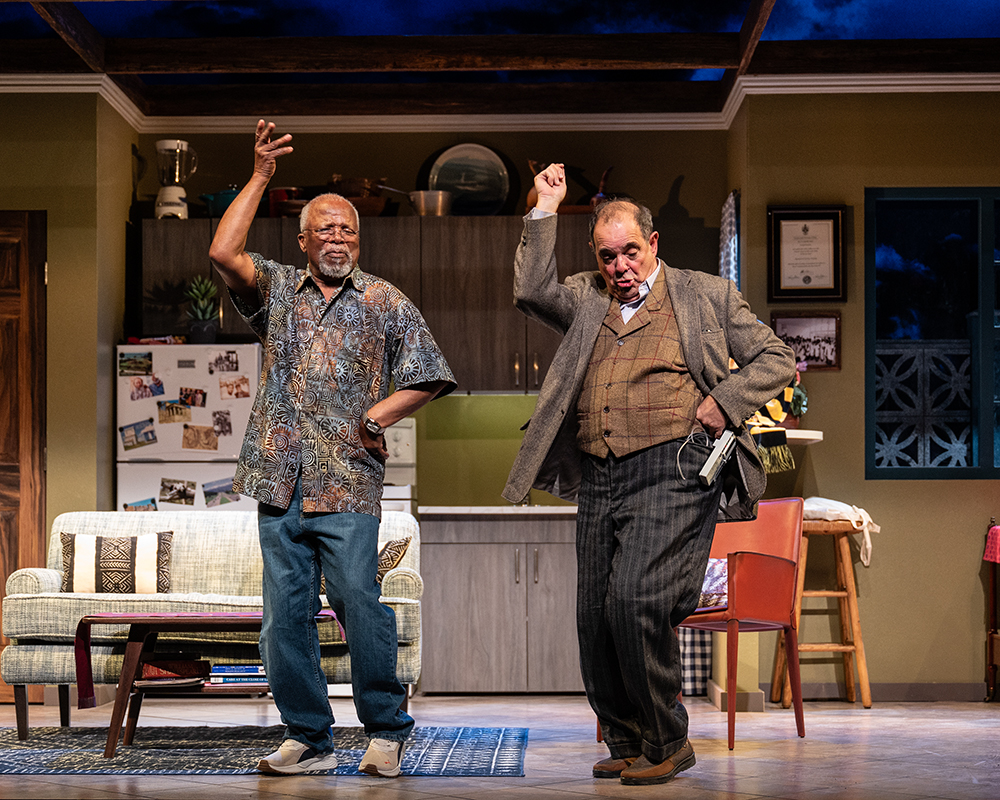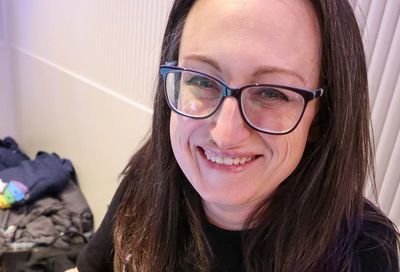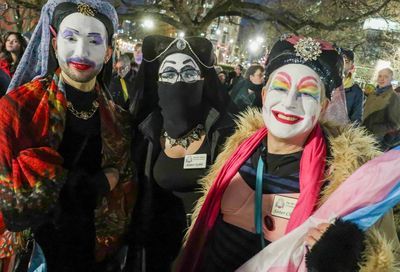Hugh Bonneville Delivers a Show-Stopping Vanya
The Shakespeare's brilliant new "Uncle Vanya" is rooted in the past but streaked with a modern sensibility.

There are many ways to skin the Chekhov cat. There is everything from word-for-word renderings to more imaginative riffs such as Aaron Posner’s wildly beautiful Stupid F***king Bird. What unites them all is Chekhov’s unstoppable relevance; his uncanny ability to touch a variety of universal nerves.
In the mood for soul-eroding ennui, being smart enough to know what you should be doing and not doing it, and the comic frustration of intertwined lives? Chekhov’s your man.
Simon Godwin walks his own attractively clever line here, delivering an Uncle Vanya, adapted by noted Irish playwright Conor McPherson, that arrives like a finely marbled steak. The increasingly fraught family dynamic is fully and meatily intact, but it is streaked with a modern sensibility.
There is a self-consciousness to this, beginning with a carefully-orchestrated-to-look-casual prelude that suggests there’s no difference between the “then” of the play and the very much “now.” It’s intriguing enough to wish that this porosity of the fourth wall would return at the end, like a reminder that what we’ve just seen is still part of what we are all living. (For those who like their analysis, it’s also a nod to Chekhov’s inspiration of a new kind of natural, realistic theater.)
There is no question that the engine of this production is Hugh Bonneville’s show-stopping Vanya. He may be smack-dab in the middle of a late 19th century household deep in the Russian countryside, but this is a guy who could just as easily be overstaying his welcome on your couch, whiskey in hand, complaining for the umpteenth time about what a crime it is for the gorgeous Yelena to be wasting her life with her boring old husband, Alexandre.

Giving it some serious Stanislavski (who developed his method to interpret Chekhov’s plays), Bonneville brings an extraordinary naturalness to this performance, a true suggestion of spontaneity, and his comic timing for this particular kind of man is nothing short of brilliant. Since this thoroughly 21st guy is the only character so patently delineated, it feels intentional, as if Godwin is drawing a line straight from this antique play into our very seats.
Whatever the goal, it works. If there is anything that almost hits a wrong key, it’s Vanya’s reaction to his own violence: everything about the man feels like he would go to his knees.
One of the only other issues is that Bonneville doesn’t always quite have enough to play against. It’s not that any of the ensemble are bad — far from it — it’s just that he is so damn good and creates such a powerful presence.
One example is John Benjamin Hickey’s doctor, Astrov. Two of the women here are meant to harbor secret affections for this frequent visitor to the family estate, but he can’t hold a candle to Bonneville’s ridiculously dissolute Vanya, who reeks (probably literally) with unshaven charisma. Hickey may nicely capture the privileged professional male’s self-absorption, but it’s hard to see what the women see in him, even if he has the advantage of being an outsider.
Godwin does draw interesting contrasts in these women, again suggesting something both modern and old. As the young Yelena, Ito Aghayere skillfully exudes a quiet intelligence, but she is almost self-possessed to a fault: Unless you know the play, you might miss her interest in the doctor and suspect an (admittedly ambivalent) attraction to Vanya.
What does work is Aghayere’s delivery, which offers its own kind of naturalism, especially in her building frustration with the family dynamics.
On the other end of the spectrum is Melanie Field’s Sonya, who seems as if she’s existing in a different, far more by-the-book production. What’s interesting is that, although she seems rather stilted at first — almost stock — there is an evolution here.
The pathos of her awareness of being considered “plain” is one of the play’s most affecting moments, as is her monologue delivering Chekhov’s final comment (or challenge). It is frankly impossible to tell if her affect is intentional, but she is certainly memorable.
In smaller roles, as Alexandre, the retired professor, Tom Nelis starts rather stiffly, but when things heat up, he brings some quality frisson as well as comedy. As always, Craig Wallace as Waffles, a long-term lodger, is stellar, moving in and out of the action but always bringing dimension.
If there is more to say about Chekhov, it’s that his plays endure because they invite the viewer to see what they want. Some will watch Uncle Vanya and be struck by the parallels between a crumbling family and a crumbling state. Middle-aged men may see themselves in the male characters’ depressing look-backs on their lives.
Women — now decades into a world where roles and expectations have changed — may yearn to see these roles reversed, with the women angsting over careers unfulfilled or derailed, or worthwhile jobs that have nevertheless drained them of hope.
In other words, in Chekhov — and in this production — there is something for everyone who is patently aware of the candle burning low.
Uncle Vanya (★★★★★) runs through April 20, at The Shakespeare Theatre’s Harman Hall, 610 F St. NW, in Washington, D.C. Ticket prices vary. Call 202-547-1122 or visit www.shakespearetheatre.org.
Support Metro Weekly’s Journalism
These are challenging times for news organizations. And yet it’s crucial we stay active and provide vital resources and information to both our local readers and the world. So won’t you please take a moment and consider supporting Metro Weekly with a membership? For as little as $5 a month, you can help ensure Metro Weekly magazine and MetroWeekly.com remain free, viable resources as we provide the best, most diverse, culturally-resonant LGBTQ coverage in both the D.C. region and around the world. Memberships come with exclusive perks and discounts, your own personal digital delivery of each week’s magazine (and an archive), access to our Member's Lounge when it launches this fall, and exclusive members-only items like Metro Weekly Membership Mugs and Tote Bags! Check out all our membership levels here and please join us today!






















You must be logged in to post a comment.